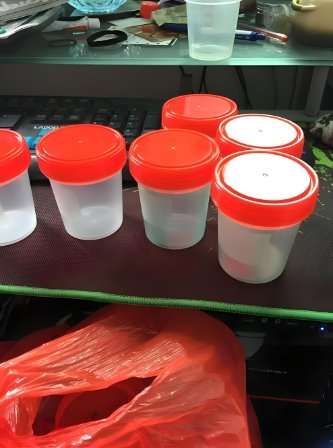
Industry 4.0 is reshaping medical injection molding. Smart factories, automation, and real-time data improve production. Mold makers benefit from greater precision and efficiency. This transformation leads to cost reduction and better quality control.
1. What Is Industry 4.0?
1.1 The Evolution of Manufacturing
- Industry 1.0: Mechanical production using steam power.
- Industry 2.0: Mass production with electricity.
- Industry 3.0: Automation with computers.
- Industry 4.0: Smart manufacturing with data and AI.
1.2 Key Features of Industry 4.0
- Internet of Things (IoT) for real-time monitoring.
- Artificial Intelligence (AI) for decision-making.
- Automation for faster and error-free production.
- Cloud computing for data management.
2. The Impact of Industry 4.0 on Medical Injection Molding
2.1 Smart Machines and Automation
- Machines adjust settings automatically.
- Sensors detect defects in real time.
- Reduces human error and labor costs.
2.2 AI-Powered Quality Control
- AI inspects molded parts instantly.
- Identifies defects before final production.
- Improves consistency and compliance.
2.3 IoT for Real-Time Monitoring
- Sensors track pressure, temperature, and cycle time.
- Sends alerts for maintenance needs.
- Reduces downtime and increases efficiency.
3. Role of Mold Makers in Industry 4.0
3.1 Digital Twin Technology
- Creates a virtual mold replica.
- Tests and optimizes mold design digitally.
- Saves time and reduces production errors.
3.2 Predictive Maintenance for Molds
- Sensors detect wear and tear.
- Predicts mold failures before they happen.
- Prevents unexpected downtime.
3.3 Advanced Robotics in Mold Making
- Robots automate mold production.
- Ensures precise and complex mold designs.
- Reduces lead times and labor costs.
4. Benefits of Industry 4.0 in Medical Injection Molding
4.1 Improved Product Quality
- Real-time monitoring ensures precision.
- AI detects and corrects errors quickly.
- Reduces waste and defective parts.
4.2 Faster Production Cycles
- Automation speeds up molding processes.
- Smart machines adjust settings instantly.
- Higher output with consistent quality.
4.3 Cost Reduction
- Fewer defects mean less material waste.
- Automated processes reduce labor costs.
- Predictive maintenance prevents costly breakdowns.
5. Advanced Materials and Industry 4.0
5.1 Smart Polymers
- Adaptive materials change properties as needed.
- Ideal for medical implants and drug delivery.
- Enhances functionality in medical applications.
5.2 Biocompatible and Sterile Plastics
- Industry 4.0 ensures precise material control.
- Meets strict medical safety standards.
- Used in implants, surgical tools, and wearables.
5.3 Sustainable Materials for Eco-Friendly Manufacturing
- Recyclable plastics reduce medical waste.
- Energy-efficient molding machines lower costs.
- Supports global sustainability efforts.
6. Industry 4.0 and Compliance in Medical Injection Molding
6.1 Meeting FDA and ISO Standards
- Automated systems ensure compliance.
- AI checks products against medical standards.
- Reduces human errors in documentation.
6.2 Traceability and Data Management
- Every molded part is tracked digitally.
- Ensures full transparency in production.
- Meets regulatory requirements for medical devices.
6.3 Cybersecurity in Smart Factories
- Protects sensitive medical data.
- Prevents cyber threats to connected machines.
- Ensures secure cloud-based operations.
7. Challenges of Implementing Industry 4.0
7.1 High Initial Investment
- Upgrading to smart machines is expensive.
- Requires training for employees.
- Companies must weigh long-term benefits.
7.2 Integration with Existing Systems
- Older factories need system upgrades.
- Compatibility issues may arise.
- Gradual transition is necessary.
7.3 Data Security Risks
- Smart factories rely on digital networks.
- Risk of cyberattacks increases.
- Strong security measures are required.
8. The Future of Industry 4.0 in Medical Injection Molding
8.1 AI-Driven Customization
- Personalized medical devices become common.
- Smart molds adapt to unique patient needs.
- Enhances precision in prosthetics and implants.
8.2 3D Printing and Injection Molding Integration
- Hybrid systems improve mold prototyping.
- Faster testing and production cycles.
- Reduces mold development time.
8.3 Full Automation and Lights-Out Manufacturing
- Factories run 24/7 with minimal human intervention.
- Robotics and AI control the entire process.
- Boosts efficiency and lowers operational costs.
Industry 4.0 is revolutionizing medical injection molding. Mold makers use smart manufacturing, AI, and automation to improve efficiency. The future promises faster, safer, and more precise production. Adopting these technologies ensures compliance, cost savings, and better medical devices.
